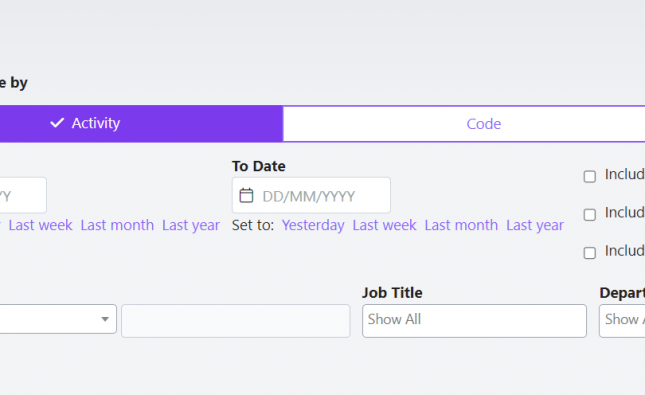Related Courses
Everyone who has ever missed out on a proper night’s sleep can tell you: the amount of rest a person gets has a huge effect on their vigilance, concentration, and productivity. That’s why encouraging and educating employees about the benefits of good quality sleep is beneficial to the business as well as supporting employees’ wellbeing.
Lack of sleep – or lack of quality sleep – also has long-term effects if the issue becomes chronic, impacting motivation, mood, and engagement, and negatively influencing mental health.
One reason for this is because, when we don’t get enough sleep, we produce lots of cortisol – the body’s main stress hormone. We know that in little doses cortisol can be useful (think of it like a natural alarm system). However, too much cortisol can leave us feeling under constant duress, leading to a number of health problems including:
- Anxiety and depression
- Headaches
- Heart disease
- Memory and concentration problems
- Digestive issues
- Sleep disorders
- Weight gain
- Diabetes
- Early death (in extreme cases)
Circadian rhythms and our sleep
Circadian rhythms are 24-hour cycles that make-up part of our body’s internal clock. They run ‘in the background’ so to speak, carrying out various physical and mental functions, one of which is our sleep/wake cycle.
Our Circadian rhythms work by ensuring that our body’s vital processes occur at optimum times during the day, e.g., we are awake in the daylight (when, historically, it would be safest) and asleep at night, as we can’t see very well in the dark.
Our sleep/wake Circadian rhythm is generated by light (which sends signals to our brain to stay alert) and by darkness (which initiates the production of melatonin, the hormone that promotes sleep). In this way, the rhythm creates a stable cycle of restorative rest that enables us to stay focused and motivated.
Why do we need sleep?
We spend about one-third of our life sleeping – and for good cause! Many critical biological processes occur during sleeping hours, including:
- Our brains store new information and memories and get rid of toxic build-up
- Our nerve cells communicate and reshuffle, helping to support a healthy brain function
- Our bodies repair cells, restore depleted energy stores, and release vital hormones and proteins
Whilst a lot is still unknown about the full purpose of sleep, it’s widely accepted that sleep promotes our wellbeing in several ways:
Conserves our energy supply – we need sleep to conserve energy; our time spent asleep reduces the need for more calories, as we function at a reduced metabolic rate (in other words, we need to spend less time, energy, and resources ‘hunting’ for food).
Cellular restoration – We use our time spent asleep to restore our bodies; during this time, our cells grow and repair themselves, including muscle repair, tissue growth, hormone release, and protein synthesis (when our cells make proteins in order to function).
Emotional wellbeing – Sleep has a big impact on our emotional health. During sleep, the parts of our brains that regulate emotion are working extra hard, supporting healthy functioning in this area and promoting emotional stability. When we are sleep deprived, the emotional centre in our brain cannot adapt to and interpret new situations very well, meaning we are more likely to emotionally overreact, feel angry or inferior, or experience the fear response (fight or flight). All of this can leave us feeling emotionally drained.
Research shows that sleep and mental health are deeply intertwined. On the one hand, sleep disturbances can contribute to the onset and progression of mental health issues, but on the other hand, mental health issues can cause people to lose sleep.
Weight maintenance – Sleep impacts how much fat we store because it regulates our hunger hormones, helping us to control our appetites and feel full after eating. Lack of sleep removes this control, which may increase the risk of over-eating and gaining unhealthy weight. Research indicates that chronic sleep deprivation increases the risks of obesity, metabolic syndrome, and Type 2 diabetes.
Proper insulin function – Insulin helps our cells convert glucose (sugar) into energy. However, if we suffer from insulin resistance, our cells cannot respond properly to this hormone, increasing high blood-sugar and putting us at risk of Type 2 diabetes. It’s thought that sleep helps protect us against insulin resistance because it allows our cells to repair and regenerate. This means they are more likely to function normally and work with our insulin hormones to convert glucose to energy in a healthy way.
Immunity – During sleeping hours, our bodies make antibodies and release cytokines, both of which are essential for the regulation of our immune system. We need extra cytokines when we get poorly or if we are under a lot of stress, which is why lack of sleep often leads to increased or prolonged illnesses or high levels of stress. It’s also why we tend to require more sleep when we get ill.
Heart health – It’s thought that lack of sleep is associated with various risk factors that increase the risk of heart disease, including high-blood pressure, increased inflammation, elevated cortisol levels, obesity, and insulin resistance.
Sleep occurs in 4 stages:
Stage 1: You transition from being awake to a restful state (usually this takes 5-15 minutes).
Stage 2: Light sleep occurs during this stage; your brain activity, breathing, heart rate, and muscle movements slow down, and your body temperature drops (usually this takes 10-25 minutes).
Stage 3: The deep sleep state begins, and this is when you process and store the day’s events in your memory. Your heart rate and breathing are at their slowest during this time.
If you wake up tired despite having had eight hours’ sleep, a lack of deep sleep may be the cause.
Stage 4: Around 90 minutes after you fall asleep, you enter REM sleep. during this time, your eyes move quickly from side to side, your brain waves increase, and your heart rate and breathing both speed up.
Dreaming often occurs during REM sleep as this is when your brain processes information, making it important for both learning and memory.
How to get better sleep
It’s obvious that getting enough sleep is an essential component of our physical and mental wellbeing. However, despite all the information out there about the benefits of a good night’s sleep, many of us still find ourselves struggling to switch off and regularly deprived of good quality sleep.
This is bad news for our personal health and bad news for business since sleep-deprived employees find it difficult to maintain focus and vigilance, have slowed reaction-times, and are more likely to make errors and omissions.
In some professions, these ailments may mean missing an important phone call or deadline, or not listening properly during meetings. In other professions, such as construction, engineering, emergency services, or lorry drivers, slow reaction times can mean the difference between life and death.
Additionally, research from Rand Europe back in 2016 estimated that sleep-deprived workers cost the UK economy £40m a year, due to being less productive at work or absent for related sickness.
In order increase the chances of a good night’s sleep we should avoid:
- Consuming alcohol, caffeine, or nicotine (especially in the evenings)
- Working in bed
- Using devices with screens before sleep because the blue light they emit stimulates the brain
- Napping for too long or too late in the day
- Eating too late
Instead, try implementing:
- A consistent sleep schedule
- A relaxing environment free of distractions
- A pre-bed routine (wind down for at least 30 minutes)
- An agreeable room temperature (not too hot or cold)
- Pleasant aromas, such as lavender, to provide a soothing, fresh scent
- An exercise routine – this can help promote solid sleep
- A sleep diary – this can help identify factors impacting your sleep
Remember, a doctor is the best person to offer medical advice for those having serious difficulties sleeping.
Talk to your doctor if you find that your sleeping habits are worsening, if they persist over long periods of time, or if they’re affecting your health, safety, or wellbeing.



